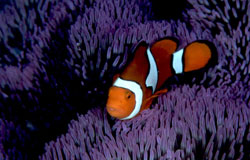You are here: Home › About Us
Center Overview

The Center for Sponsored Coastal Ocean Research (CSCOR) develops and improves predictive capabilities for managing the Nation's use of its coastal resources through competitive research programs. CSCOR also supports efforts to translate the results of its research investments, and those of others, into accessible and useful information for coastal managers, planners, lawmakers, and the public to help balance the needs of economic growth with those of conserving the resources of our Nation's Great Lakes, estuaries, and coastal ocean.
CSCOR provides a focal point for coastal ocean research within the National Oceanic and Atmospheric Administration’s (NOAA) National Centers for Coastal Ocean Science (NCCOS). Together with partners within NOAA and other organizations responsible for coastal resources, CSCOR advances the scientific understanding needed to protect coastal resources and ensure their viability for future generations. This increased understanding of the Great Lakes and coastal ocean directly benefits the management of U.S. coastal resources, and helps NOAA, other federal agencies, and state, tribal, and local governments achieve their coastal stewardship responsibilities.
Program Areas
CSCOR uses a mix of regional ecosystem and targeted studies to address pressing national issues affecting coastal communities. Such an approach allows CSCOR to address complex coastal issues within a coordinated, interdisciplinary framework. CSCOR and the other NCCOS centers focus on five key stressors or causes of ecosystem change: climate change, extreme natural events, pollution, invasive species, and land and resources use. All CSCOR programs are undertaken with the understanding that coastal issues are complex, and that these stressors interact with one another. CSCOR research seeks to understand the impacts of these stressors on coastal ecosystems, including the human dimension of social and economic impacts. CSCOR is ideally suited to evaluate these problems in an ecosystem framework that accounts for the interactions between the different stressor categories (i.e., multiple stressors) and ecosystem components (e.g., airshed, watershed, coastal waters).
Within these 5 broad stressor categories, CSCOR conducts research programs that span a range of spatial and geographic scales in ecosystems from coastal watersheds to the outer boundary of the U.S. Exclusive Economic Zone (200 miles from U.S. coastline), including the:
- Coastal Oceans, which encompass continental shelf and gulf regions outside of local coastlines and estuaries, as well as the Great Lakes;
- Estuaries, which include watershed and coastal ocean influences on estuarine dynamics;
- National Marine Sanctuaries, areas designated for preservation, and;
- Coral Reefs.
Different science issues predominate in each of these areas, although it is recognized that each region has influence on the others and issues can span multiple regions. Because management regimes differ in these regions, user groups and stakeholders may be different in the different regions as well. CSCOR works closely with these user groups and stakeholders, as well as leading scientists, to prioritize its research agenda.

